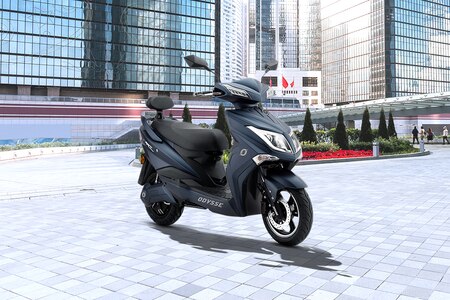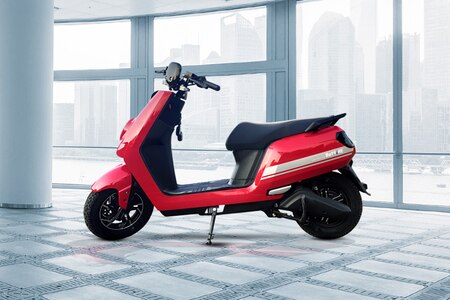Niti Aayog CEO urges stakeholders to replicate Indian dominance in ICE 2Ws in EV
- Indian two-wheeler market is the largest in the world in terms of production and sales volume.


Niti Aayog CEO Amitabh Kant has urged the auto industry stakeholders to replicate the Indian dominance in the traditional Internal Combustion Engine (ICE) two-wheelers in the sector of electric vehicles.
Also Read : Honda plans to roll out 2 electric SUVs in the US by 2024. Here are the details
He tweeted that Volvo Car India has decided to launch one electric vehicle per year. Kia too has revealed images of its EV6 battery electric vehicle.
Also check these Vehicles
"Electric Vehicles on the move: Volvo Car India will launch one electric vehicle annually. It aspires to become a fully electric car company. Kia has revealed the 1st images of EV6 -its first dedicated battery electric vehicle (BEV) built on its new Electric Global Modular Platform," Kant tweeted.
He also said that India has taken the lead in the manufacturing of electric vehicles. The dominance and leadership that India has in traditional Internal Combustion Engine (ICE) two-wheelers must be replicated in EVs. He further mentioned that stakeholders such as Bajaj Auto, Ola, Ather Energy, Okinawa, Kinetic, Revolt and TVS Motor Company are pursuing manufacturing for India and global markets.
Bajaj Auto has already launched the electric Chetak scooter in India. Ola is working on its first electric scooter that will be made in India. TVS too has launched its iQube electric scooter.
According to a study by Rocky Mountain Institute (RMI) and Niti Aayog, India’s transition to electric vehicles will require a cumulative capital investment of around ₹19.70 lakh crore in sectors like EV manufacturing, charging infrastructure and battery development over the next decade.
The report further points that there is a ₹3.70 lakh crore business opportunity for the financing of electric vehicles in India by 2030. Currently, around 80% of the vehicle finance industry worth around ₹4.5 lakh crore. Overall, the investment in India’s transition to electric mobility has a lot of potentials to create significant economic, social and environmental benefits, claims the study.








 64.8 kWh
64.8 kWh 418 Km
418 Km














